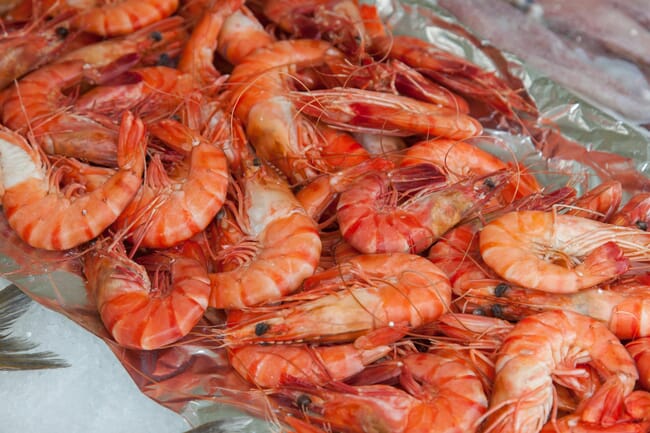
© Mark Stebnicki
The Southern Shrimp Alliance (SSA) has praised the Trump administration’s newly announced trade agreements with Indonesia and Vietnam, which will see shrimp imports from both countries subjected to additional tariffs – 19 percent for Indonesia and 20 percent for Vietnam. The agreements also include commitments from Indonesia to tackle forced labor, improve labor enforcement and combat illegal, unreported and unregulated (IUU) fishing practices, which were outlined in a Joint Statement between the United States and Indonesia.
The agreements stem from President Trump’s announcement of Liberation Day tariffs – 32 percent on Indonesian goods and 46 percent on Vietnamese goods – that pressured both countries to combat unethical practices and open their markets to maintain competitive access to the US market. Negotiations with the two other major foreign suppliers of shrimp to this market, Ecuador and India, are ongoing and critical to the US shrimp industry.
“Counter-productive trade policies have outsourced our shrimp supply chain to countries engaging in forced labor, using banned antibiotics and destroying the environment. We welcome President Trump’s agreements with Indonesia and Vietnam, which include commitments to reform, while imposing tariffs that offset unfair trade while suppliers right the ship,” said John Williams, executive director of the Southern Shrimp Alliance, in a press release.
According to US International Trade Commission data, 93 percent of all shrimp consumed in the US is imported. India and Ecuador alone accounted for over 60 percent of total imports in 2024.
Shrimp imports rose by 11.4 percent in the first five months of 2025, with Ecuador and India responsible for 70 percent of that surge. The Southern Shrimp Alliance says these increases occurred while the US paused additional tariffs to allow for negotiations – an opportunity the Alliance claims was used to flood the market.
“The American shrimp industry, as well as the shrimp industries in Indonesia and Vietnam that have committed to reforms, should not be punished by the continued market manipulation by the Ecuadorian and Indian shrimp industries,” added Williams.
Concerns over “cheap shrimp” practices
According to the SSA, abuses have been identified in Indonesia and Vietnam, but Ecuador’s and India’s shrimp industries are responsible for the most egregious cost-cutting at any price. The shrimp industries in India and Ecuador face widespread allegations of forced labor, child labor and environmental destruction, including mangrove deforestation and the use of banned antibiotics – where other major markets, like the EU and Japan, have taken significant steps to prevent contaminated shrimp from reaching their consumers.
Despite these concerns, the US continues to be one of the most accessible markets for shrimp from these countries, which critics argue undermines domestic producers operating under stricter labor and environmental standards.
“America First” trade policy benefits
The Southern Shrimp Alliance argues that tariffs help level the playing field and support responsible producers, including those in Indonesia and Vietnam now committed to reforms.
“Too many American shrimpers have spent the last two seasons tied up at the dock. President Trump’s additional tariffs on major shrimp suppliers will enable our fishermen to increase their production and be an economic boon to coastal communities,” said Williams.
The Alliance continues to push for meaningful trade enforcement against India and Ecuador to ensure sustainable and ethical shrimp sourcing and safeguard US food security, which it believes could be significantly strengthened by boosting domestic shrimp production.



